Activism

Clara Lipman
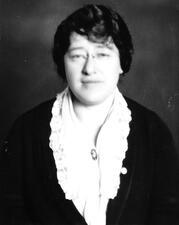
Ida Lippman

Lorna Lippmann
Lorna Lippmann (1921-2004) was an Australian researcher and educator who devoted much of her life to the promotion of Aboriginal rights. She was an activist, academic researcher, author, government advisor, and community relations practitioner. Aboriginal leaders praised her pioneering contributions.
Literature Scholars in the United States
Jewish women have been among the key figures in literary scholarship in the United States in the postwar period. Those entering the profession in the 1950s faced more difficulties as women than they did as Jews. Today, Jewish women are found in all corners of the profession, from feminist and queer theory to administration, critical race studies, and beyond.
Alice Springer Fleisher Liveright
Social worker Alice Springer Fleisher Liveright devoted much of her life to working for equal rights for women and African Americans, and for social welfare for children and poor adults. Passionate in her quest for social justice, she served as president of the Juvenile Aid Society, president of the Philadelphia Conference of Social Work, and as the Pennsylvania State Secretary of Welfare.
Sadie Loewith

Rebecca Pearl Lovenstein
In 1920, Rebecca Pearl Lovenstein became the first woman lawyer allowed to practice in Virginia. She went on to create a state bar association for women.
Minnie Low
Known as the “Jane Addams of the Jews,” Minnie Low was a leader in the Jewish social service community. At a time when social work usually meant wealthy people donating to the poor, Low pushed for new kinds of aid such as vocational training and loans that made the needy self–sufficient.
Johanna Löwenherz
Johanna Löwenherz traveled widely on behalf of Germany’s socialist women’s movement, raising consciousness and lecturing on the social, economic, and legal equality of women. She became one of the most active representatives of the SDP in the Neuwied region, elected as a delegate to three regional party conferences.
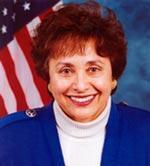
Nita M. Lowey
Esther Luria
Esther Luria was a freelance journalist whose work appeared in many politically left-of-center Yiddish publications in the early twentieth-century United States. A socialist, a feminist, and a political activist, she was also an educator. She used her columns not only to advocate for the ideas in which she believed, but also to provide her mainly east European immigrant readers with a better understanding of their new environment.
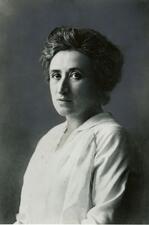
Rosa Luxemburg
Rosa Luxemburg was a socialist revolutionary known for her critical perspective. Born in Poland, Luxemburg had become an important figure in the world socialist movement by 1913. She argued against Lenin’s hierarchal conception of party organization, and against revisionism. Luxemburg was internationalist in orientation and unflinchingly dedicated to a radical democratic vision.
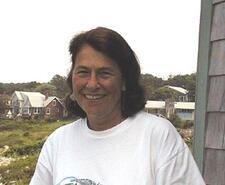
Sally Mack
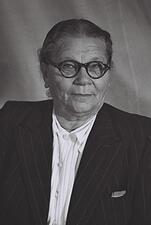
Ada Maimon (Fishman)
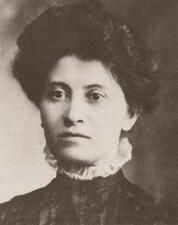
Theresa Serber Malkiel
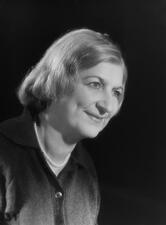
Clara Malraux
Journalist, essayist, novelist, and translator Clara Malraux spent her early life involved with antifascist activities and joined the French Resistance during World War II while in hiding with her daughter. Her work often describes her attempts to make a place for herself in a misogynistic and antisemitic society.
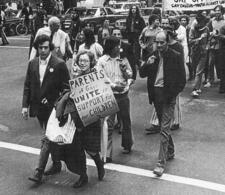
Jeanne Manford
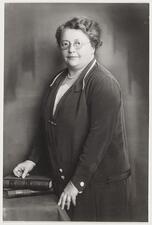
Rosa Manus
Rosa Manus was a Dutch leader in international women’s movements for suffrage and equality, as well as a vocal pacifist before and during World War II. As a Jew, she at times clashed with other feminist leaders.

Gill Marcus
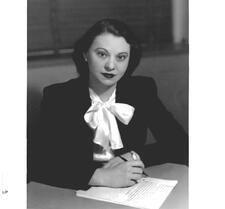
Bessie Margolin
Bessie Margolin was raised in New Orleans’s Jewish orphanage, where she learned powerful lessons in social justice that propelled her trailblazing legal career through the New Deal and Nazi War Crimes Trials to the United State Supreme Court, where she championed the rights of millions of American workers. A reluctant feminist who became the nation’s top fighter for equal pay for women and a co-founder of NOW, Margolin used intellect and charm to open courtroom doors for countless women who have followed.
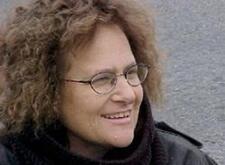
Marilyn Golden
Marilyn Golden was a long-time disability rights advocate who played a leading role in advancing accessible architecture and transportation in the United States. She was a key player in developing the accessibility provisions of the Americans with Disabilities Act and ensuring their effective implementation.
Lenore Guinzburg Marshall
Lenore Guinzburg Marshall, novelist, poet, activist, and literary editor, pushed her publishing company to publish William Faulkner’s The Sound and the Fury after it had been rejected by twelve other publishers. She published her first novel, Only the Fear, in 1935 and her first poetry collection, No Boundary, in 1943, going on to write poetry, novels, short stories, essays, and a memoir.
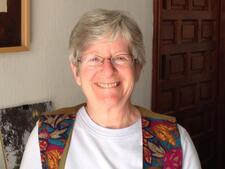
Martha Ackelsberg
Martha Ackelsberg is a Jewish feminist lesbian anarchist activist, community leader, and academic. She is a leading scholar of anarchism and of anarchist women’s organizations of the Spanish Civil War. A founder and/or early leading visionary in pivotal United States Jewish developments, Ackelsberg has been a key voice shaping feminist, lesbian, and havurah contributions to twentieth- and twenty-first century Jewish life.
Maskilot, Nineteenth Century
Nineteenth-century maskilot were Jewish women proponents of the Haskalah, who wished to take part in the cultural and social revolution it preached. Despite assumptions that the Haskalah was an exclusively male movement, a small number of women read Hebrew literature, wrote in Hebrew, and regarded themselves as part of the Haskalah movement.



